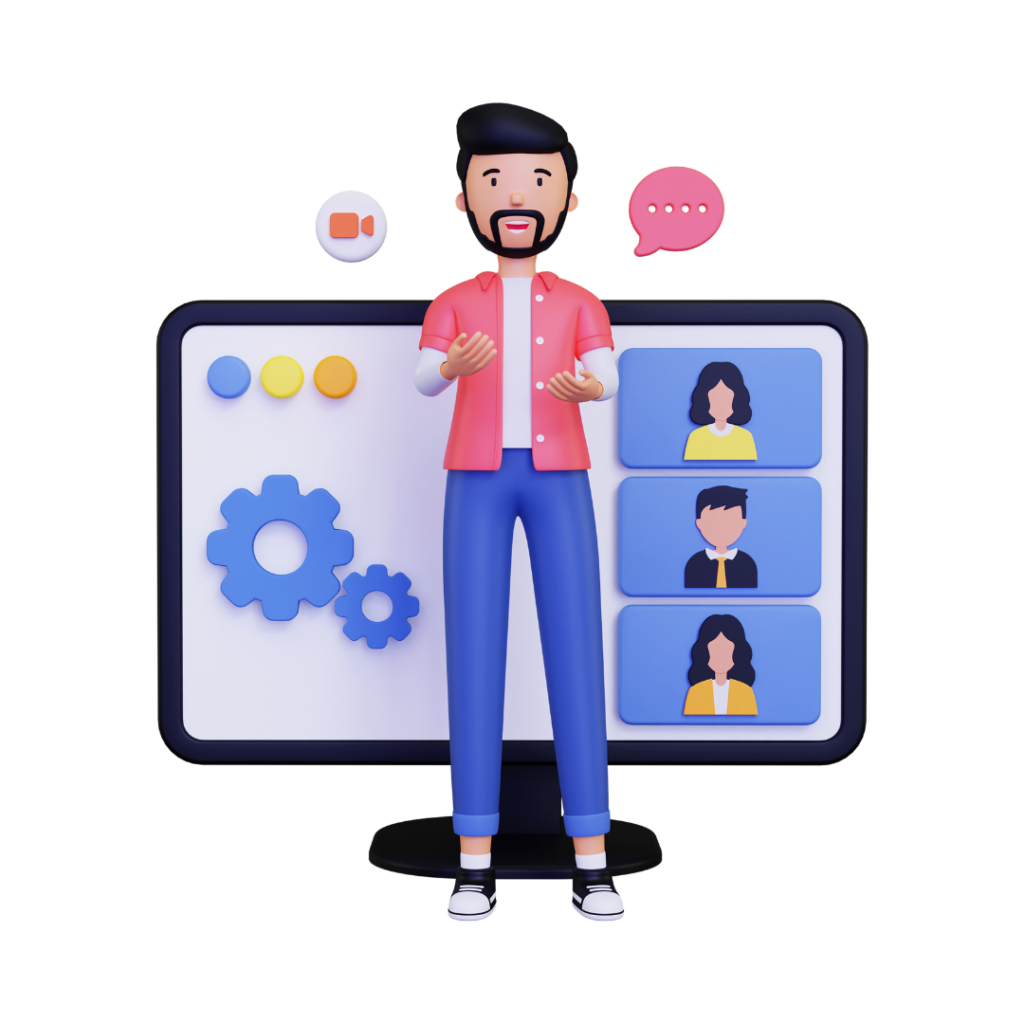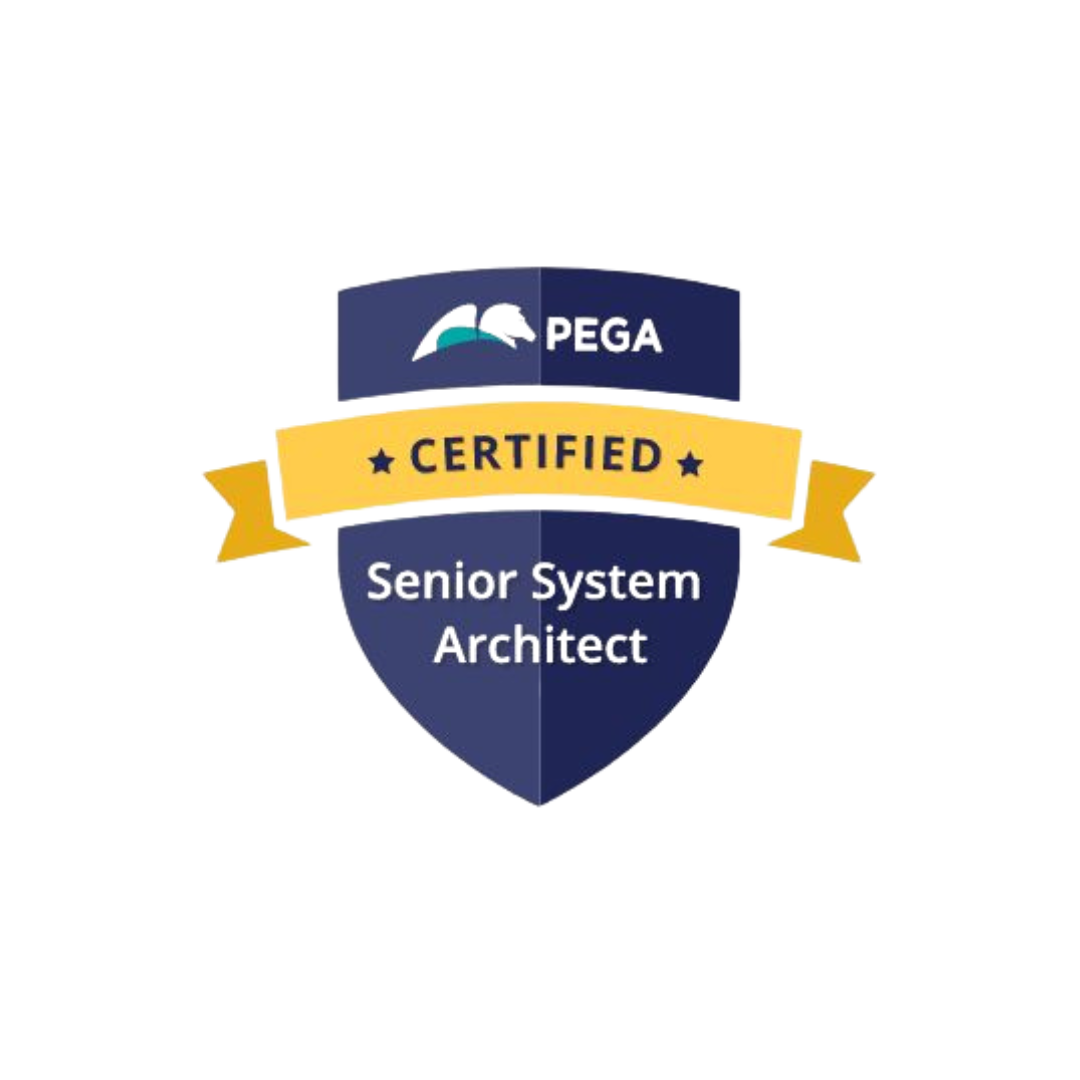Pega Training In Bangalore
With 100% Placement Assistance
(4.8 Rating from Over 2564 Learners)
- Live Training
- Real Time Projects
- Weekly Doubts Session

Pega Training in Bangalore Details
About the Training -
We are at the forefront of Pega Training in Bangalore, offering premium, online instruction on Pega technology, tailored to prepare learners for the dynamic professional landscape. Pega stands out as an eminent business process management (BPM) platform, renowned for its capability to develop applications that are both scalable and efficient. Our seasoned trainers, who bring real-world industry experience to the table, mentor students through practical projects, thereby ensuring a blend of hands-on knowledge with foundational learning. Catering to both novices and those seeking to enhance their skills, our Pega Training in Bangalore is crafted to pave the way for a prosperous career in automation and process management.
Key Points of Pega Training
Beginners to Intermediate
CSA & CSSA Concepts
Interview & Job Support
Real Time & Industry Experts
Updated Material
Online Batch & One on One
Pega Training Program Highlights -
- Multiple Real-Time Projects
- Gain 1-2 Years Experience in Just 45 Days
- 100% JOB Oriented Program
- One-on-One Mentor with Project Support
- Mock Interviews | Interview Guidance
- Resume Preparation & Access to Recordings for 365 Days
- Whatsapp Group & Doubts Sessions
- Special Material only for Interview Preparation
- 1-1 Training Available
What is Pega?
Pega is a premier software platform that specializes in Business Process Management (BPM) and Customer Relationship Management (CRM), enabling businesses to automate processes, optimize operations, and improve customer engagement. Created by Pegasystems, it provides enterprises with the tools to develop, deploy, and oversee business applications with minimal coding, leveraging a low-code approach for rapid application development.
Why you Should take Pega Training?
Pega is one of the most powerful and flexible Business Process Management (BPM) platforms available today. Here’s why organizations and professionals choose Pega:
Automation with Efficiency: Pega’s model-driven architecture allows businesses to automate complex workflows with ease, streamlining processes and reducing operational costs.
No-Code/Low-Code Development: Pega empowers users to build sophisticated applications with little to no coding experience. This makes development faster and more accessible, allowing non-developers to contribute effectively.
Scalability and Flexibility: Pega is known for its ability to scale, making it a perfect choice for both small businesses and large enterprises. Its flexible framework allows companies to adapt their systems as they grow.
Customer-Centric Approach: Pega’s AI-powered decision-making ensures personalized customer experiences, which helps businesses engage with their clients more effectively.
Seamless Integration: Pega integrates smoothly with existing IT ecosystems, whether it’s CRM, ERP, or other enterprise systems, providing a unified and efficient platform.
Global Demand for Pega Skills: With the increasing adoption of Pega across various industries like finance, healthcare, and telecommunications, professionals with Pega expertise are in high demand worldwide, offering significant career growth opportunities.
Pega Training In Bangalore Curriculum
● Introduction to Object Oriented programming
● OOP Concepts
● Introduction to Process, Business Process, BPM
● Benefits of BPM Solutions
● Various BPM tools in the Market
● Introduction to Case Management
● What is Pega ?
● Evolution of Pega Platform
● Pega Footprint in various domains
● Introduction to Pega Infinity
● Pega Capabilities
● Pega Installation
● Introduction to Pega Studios
● Roles on a Pega project
● Exploring the Pega Studios
● Introduction to the Dev Studio
● Creating a Pega application
● Introduction to creating a Framework application
● Working on creating an Implementation Application
● Difference between Framework & Implementation applications
- Introduction to Case types
- What is a Case life cycle
- Design a case type
- User context
- Updating Case status
- How to add instructions to assignments
● Parallel processing
● How to perform processes in parallel
● Alternate Paths
● Optional actions
● Adding optional actions to a case
● Skipping processes and stages
● How to skip a process or stage in a workflow
● Introduction to Smart Shapes
● Process Flow Rule
● Flow Action Rule
● Introduction to Section.
● Layouts & Controls in Section
● Creating Work Object & Tracking WO
● Where am I
● Introduction to flow action pre- and post-processing
● Pre- and post-processing in flow actions
● Configuring pre- and post-processing for flow actions
● Operator Profile
● Application and Access groups
● Introduction to adding fields to a case type
● Data elements in Pega applications
● Page Mode & Value Mode properties
● How to manage properties
● How to reference a property
● Defining properties
● User views
● Configuring user views
● Introduction to data in memory
● Data storage in memory
● Clipboard
● Types of Pages in Clipboard
● pyWorkPage
● How to view clipboard data
● How to use and set property values with the Clipboard
● Tracer
● Inheritance Types in PEGA
● What is Direct Inheritance & Pattern Inheritance
● Concept of Dual Inheritance
● Introduction to Class Structures
● Manipulating case data
● Introduction to setting property values automatically
● Data transforms
● How to set values with data transforms
● How to set default property values
● Data transforms and superclassing
● Introduction to Data Pages
● How to configure a Data Page
● Source data to Data Elements with Data Pages
● Load Management
● Using Activity to define Business logic
● Configuring Activity
● How to Call One Activity from Another Activity
● Various methods in Activity
● Understanding the Difference between Call, Branch & Queue
● Routing work to users
● How to route assignments
● Introduction to Worklist & Work Baskets
● How to configure custom routing
● Case approval configuration
● How to configure a single level approval
● How to configure cascading approvals
● Creating workgroup & workbasket
● Decision points
● How to add a decision point to a process
● Decision Rules in PEGA.
● How to call Decision Rules
● When rule, Decision Table, Decision Tree & Map Value
● Expression Functions.
● Introduction to Declarative Processing
● Declare Expressions
● Declare Constraints
● Declare On Change
● Declare Trigger
● Declare Index
● Declare Collection
● Forward Chaining & Backward Chaining
● Declare Index.
● Introduction to optimizing report data
● Data storage in Pega applications
● Property optimization
● Optimizing properties for reporting
● Reporting: Creating business reports
● Introduction to creating business reports
● The role of reports
● Business and process reports
● The Report Browser
● How to create a report
● How to organize report results
● Creating a report
● Organizing report results
● Setting a service level
● Service level agreements
● How to add a service level to an assignment
● How to add a service level to a case
● How to add service levels throughout the case life cycle
● What is Ruleset
● Rule Set and Versioning
● How to create a new rule-set version
● How to lock a rule set version
● About Check-in, Check-out & Private edit
● Introduction to validating user data
● Methods of data validation
● Validate rule
● Edit validate rule
● Configure validate rule and edit validate rule
● Validating a flow action using validate rule
● How to build a section rule
● How to build a section for reuse
● Creating dynamic layouts in a section
● Using different types of layouts and controls
● Introduction to configuring and sending
● correspondence
● Case communications
● Sending an email from a case
● How to configure correspondence rules
● Introduction to Unit testing rules
● Unit testing
● How to unit test a rule
● Delegating Rule management to Business Users
● Business Rule delegation
● How to delegate rules to business users
● Application Debugging Tools
● Clipboard
● Tracer
● Reviewing Log files
● Live UI
● Analyzing application performance
● Application Security
● Managing Access control
● Adding roles to an access control model
● Managing access to individual rules
● Managing user access with access groups
● DevOps
● Continuous Integration
● DevOps Technology
● Deployment Manager
● Introduction to styling an application
● Styling an application with skins
● How to customize an application appearance with skins
● Controlling application appearance with a skin
- Interview Questions Discussion, Q & A Session
Who can Learn Pega?
Pega’s flexible, low-code/no-code environment makes it an attractive learning avenue for a diverse audience. Here’s who stands to gain from exploring Pega:
Tech Enthusiasts and Software Developers: Those already navigating the tech landscape can bolster their expertise in automation and BPM through Pega, achieving swifter, more effective application development.
Business Analysts: With Pega’s user-friendly visual tools, business analysts can easily map out workflows and processes, sidestepping the need for deep coding knowledge.
Project Managers: By mastering Pega, project managers can enhance process efficiency, foster better team collaboration, and deliver superior client solutions.
Academic Pursuers and Fresh Graduates: Aspiring tech industry entrants can leverage Pega learning to distinguish themselves, accessing a skill that’s widely sought after across various sectors and ensures promising career advancement.
Career Changers: Thanks to Pega’s approachable no-code functionality, individuals without a technical background can venture into technology, designing and managing applications without prerequisite programming skills.
Business Visionaries and Entrepreneurs: Leaders aiming to streamline organizational processes or boost customer interactions can turn to Pega for building scalable, effective solutions, reducing reliance on specialized tech personnel.
Certifications in Pega training in Bangalore -

CSA (Certified System Architect)
This is the entry-level certification in Pega, designed for developers who want to gain foundational knowledge of Pega's platform. It focuses on core concepts like application development, case management, and Pega’s user interface.

CSSA (Certified Senior System Architect)
This advanced certification is aimed at experienced Pega developers who have already earned the CSA. It delves deeper into Pega’s architecture, performance optimization, and complex system designs, preparing professionals for senior development roles.
Career Opportunities after Pega Training in Bangalore -
As businesses increasingly adopt automation and process management technologies, the demand for professionals skilled in Pega is on the rise. Here are some of the top career paths for those proficient in Pega:
Pega Developer: Pega Developers are responsible for designing and building Pega-based applications. They work with the Pega platform to automate workflows, create efficient business processes, and integrate systems.
- Skills required: Pega development experience, understanding of BPM, good problem-solving abilities.
Pega Business Analyst: Business Analysts work closely with stakeholders to understand business needs and map them onto Pega solutions. They design process flows and help bridge the gap between business requirements and technical implementation.
- Skills required: Strong communication, process mapping, familiarity with Pega tools.
Pega Systems Architect: Pega System Architects focus on creating the architecture and framework for Pega-based applications. They ensure the scalability, performance, and reliability of the applications being built.
- Skills required: In-depth knowledge of Pega architecture, certifications like CSSA (Certified Senior System Architect), PRPC development.
Pega Certified Lead System Architect (CLSA): This is a senior-level role for experts in Pega, leading teams and designing advanced solutions. CLSAs often mentor developers and guide the overall technical direction of Pega projects.
- Skills required: Pega architecture expertise, leadership, advanced certifications.
Pega Consultant: Pega Consultants advise companies on how to implement Pega technology effectively. They provide strategic guidance and help organizations leverage Pega for optimal business outcomes.
- Skills required: Consulting experience, strong Pega knowledge, client management.
Pega Support Engineer: Support engineers provide technical assistance to businesses using Pega systems. They troubleshoot issues, manage system performance, and ensure smooth functioning of Pega applications.
- Skills required: Problem-solving skills, Pega troubleshooting, customer service.
Pega Trainer: With the growing demand for Pega professionals, trainers play a crucial role in educating students, graduates, and professionals on the Pega platform. Pega Trainers conduct courses, workshops, and certification training.
- Skills required: Expertise in Pega, communication and teaching skills.
Pega Solutions Architect: Solutions Architects design tailored Pega solutions for organizations based on their specific business challenges. They work with both business and technical teams to implement effective solutions.
- Skills required: Experience with Pega, problem-solving, client interaction.
Scope of Pega training in Bangalore
The potential for Pega training in Bangalore is significant due to several factors that highlight the platform’s growing relevance:
Industry Adoption: Numerous sectors such as finance, healthcare, insurance, telecom, and public administration are embracing Pega for process automation, driving up demand for knowledgeable Pega specialists.
Digital Transformation Catalyst: In the context of digital evolution, Pega is pivotal in updating outdated systems, refining customer experiences, and boosting operational efficiency. Its low-code feature simplifies the adaptation process for businesses in the face of market changes.
Variety in Career Paths: The expansion of Pega has paved the way for a variety of professional roles, including Pega Developer, Business Analyst, System Architect, and Consultant, each offering substantial prospects for career progression.
Synergy with Advanced Technologies: Pega’s seamless integration with AI, machine learning, and analytics positions it as an enabler for data-informed decision-making and the enhancement of customer engagement strategies.
International Opportunities: Pega’s global application ensures that proficiency in Pega is an asset in international job markets, widening professional horizons for Pega-trained individuals.
Education and Credentials: As Pega continues to evolve, ongoing learning and certification paths such as CSA (Certified System Architect), CSSA (Certified Senior System Architect), and CLSA (Certified Lead System Architect) are essential for professionals to maintain their competitive edge and stay abreast of the latest industry developments.
Reviews of Pega Training In Bangalore -
Student
I had no prior knowledge of Pega, but this training made the concepts easy to understand. The practical examples and case studies were really helpful. Now, I feel confident about starting my career as a Pega Developer. One of the best Pega training in Bangalore
Student
Pranathi’s guidance throughout the training was invaluable. She explained complex concepts with ease and always made sure we were keeping up. Her real-world insights really helped me bridge the gap between theory and practice this is the best Pega training in Bangalore i can say
Student
When i am looking to get pega training in Bangalore, i stumbled upon this one and The online training i have taken exceeded my expectations. The sessions were interactive, and I loved how the instructors encouraged questions. I completed my CSA certification and landed a job within a few months of completing the course
Student
Pranathi was an exceptional trainer. Her depth of knowledge in Pega was evident in every session, and she was always available to clear our doubts. Thanks to her, I’ve gained skills that are highly valued in the job market and this is the one of the best pega training in Bangalore
Student
This Pega training in Bangalore is the best investment I’ve made for my career. The course content was up-to-date, and the exercises were highly practical. It helped me transition smoothly into the role of a Pega Systems Architect.
Student
Pricings of Pega Training In Bangalore
Pega Online Training
-
Recorded Video Access for 1 Year
-
45 Days of Training
-
Includes Live Project
-
Certification-Oriented
-
Basic to Advance Level
-
Interview Guidance
-
100% Placement & Certification Assistance
-
Whatsapp Group, Interview Guide Access
Pega Online Training
-
Special Guidance
-
3 Months Duration
-
Includes 3 Live Projects
-
Certification-Oriented
-
Basic to Advance Level
-
Interview Guidance
-
100% Placement & Certification Assistance
-
Whatsapp Group, Interview Guide Access
FAQs of Pega Training In Bangalore -
Pega training In Bangalore equips individuals with the knowledge and skills to develop, manage, and optimize business process management (BPM) applications using Pega’s low-code platform. It covers topics like case management, workflow automation, and application development.
Pega training in Bangalore is suitable for IT professionals, developers, business analysts, project managers, and even non-technical individuals who want to enter the world of automation and BPM. No prior coding experience is required, but familiarity with IT concepts can be helpful.
Pega training in Bangalore offers certifications at various levels, including:
- Certified System Architect (CSA) for foundational skills,
- Certified Senior System Architect (CSSA) for advanced expertise,
- Certified Lead System Architect (CLSA) for senior-level professionals and architects.
The duration of Pega training in Bangalore varies depending on the level of expertise being pursued, but typically it can take anywhere from 3 to 10 weeks to complete, depending on the course and certification track.
After completing Pega training in Bangalore, you can pursue roles such as Pega Developer, Business Analyst, System Architect, Solutions Architect, Pega Consultant, and Support Engineer. Pega skills are in high demand across various industries.
No, one of Pega’s strengths is its low-code/no-code approach. Even individuals with minimal coding experience can quickly learn to build applications using Pega’s visual tools and model-driven architecture.
We at Pega training in Bangalore provides you with in-demand skills in automation and BPM, opening doors to high-paying roles across industries. With Pega certifications, you can stand out as a specialist in process optimization and digital transformation.
Beginner (0-2 years): A beginner with a Certified System Architect (CSA) certification can expect a salary range of ₹4-6 lakhs per annum in India, or around $60,000-$80,000 per annum in the U.S. This can vary based on the employer and location.
Intermediate (3-5 years): Professionals with 3-5 years of experience or a Certified Senior System Architect (CSSA) certification can earn between ₹7-12 lakhs per annum in India, or $85,000-$110,000 per annum in the U.S.
Experienced (5+ years): Senior-level professionals, especially with a Certified Lead System Architect (CLSA) certification, can earn ₹15-25 lakhs per annum in India, or $120,000-$160,000 per annum in the U.S., with salaries scaling higher for leadership roles.
Our Other Courses

Digital Marketing

Celonis


The Pega training in Bangalore was absolutely fantastic! The curriculum was well-structured, and the hands-on projects gave me a clear understanding of real-world applications. I feel fully equipped to tackle Pega-based projects at work now.